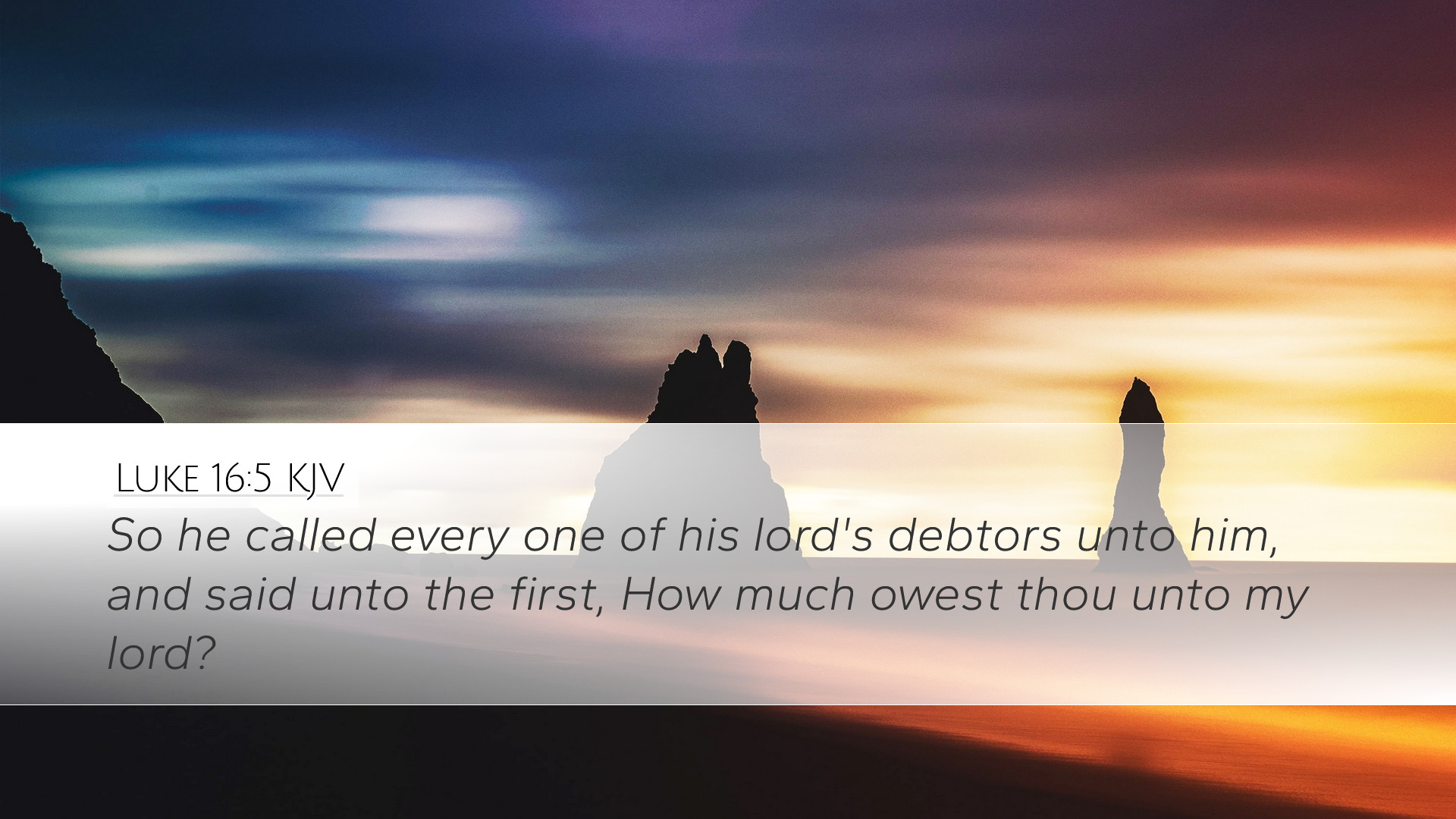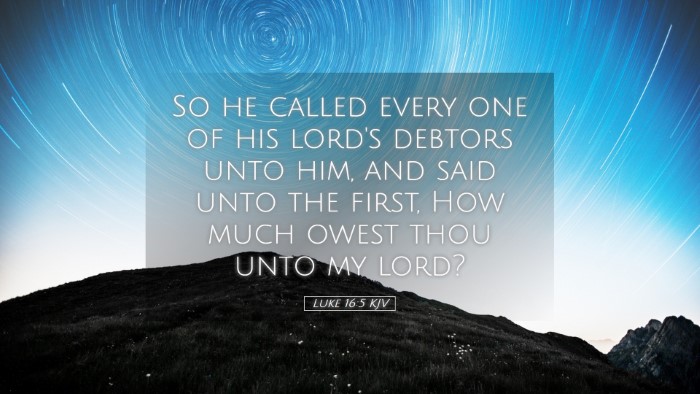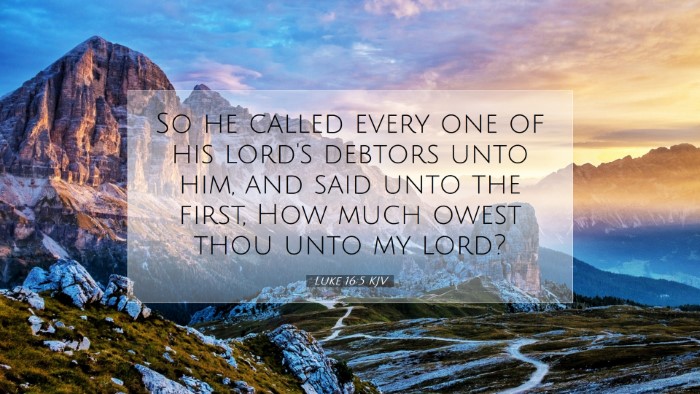Commentary on Luke 16:5
Luke 16:5 states: "So he called every one of his lord's debtors unto him, and said unto the first, How much owest thou unto my lord?" This verse is part of the Parable of the Unjust Steward, which presents profound truths about stewardship, accountability, and the use of worldly resources in relation to eternal values.
Contextual Background
The setting of this parable is essential for understanding its implications. The story is told by Jesus to His disciples while in the company of Pharisees who were criticized for their love of money (Luke 16:14). Christ uses this parable to illustrate the cleverness of the unjust steward and to highlight lessons for those who aspire to be faithful stewards of God’s blessings.
Analysis of Luke 16:5
In this verse, we observe the steward's immediate action following the discovery of his impending dismissal. The steward, realizing the gravity of his situation, seeks to secure his future by tactfully approaching those who owe his master.
1. The Call to the Debtors
Matthew Henry notes that the steward's calling of the debtors indicates a proactive approach to mitigating his losses. Rather than succumbing to despair, he leverages his position to create connections that might benefit him in the future. This reflects a form of shrewdness often overlooked in discussions about biblical morality.
2. Financial Responsibility
Albert Barnes emphasizes the moral culpability inherent in the debtor's obligations. By highlighting the debtors, the steward showcases the significant amounts owed, suggesting an economy of relationships built on trust and fiduciary responsibility.
3. The Nature of Debt
Adam Clarke elaborates on the nature of debts within the context of the parable, indicating that they symbolize more than mere financial obligation. They represent spiritual responsibilities and the accounts believers must settle with God. Clarke suggests that all earthly debts ultimately reflect the greater debt of sin before God.
Spiritual Implications
The actions of the steward present a complex moral landscape. The scripture compels readers to reflect on their approach to worldly wealth and relationships. The cunning of the steward serves as a poignant lesson about resourcefulness in the face of impending judgment.
1. Preparation for the Future
Henry points out the importance of wise preparation for one's future—both in this life and the next. The steward acts shrewdly to provide for himself after his dismissal, prompting readers to consider how they are preparing for their eternal future through wise stewardship of their resources.
2. The Value of Relationships
Barnes asserts that, while the steward may be unjust, he recognizes the human connections that bind him to others. The dynamics of indebtedness showcase a network of relationships entwined with trust, expectation, and eventual accountability. For contemporary audiences, this reflects the need to nurture and maintain rightful relationships with the community and God.
3. Stewardship Principles
Clarke emphasizes that true stewardship transcends mere financial management; it encompasses the overall management of one's life and responsibilities. The way one handles earthly goods should reflect a heart aligned with God’s purposes, caring for others and serving His kingdom.
Conclusion
In conclusion, Luke 16:5 serves as a microcosm of larger biblical teachings regarding stewardship and accountability. The parable challenges pastors, theologians, and scholars alike to reflect on how they manage not just their financial resources but also their time, talents, and relationships in preparation for eternity. The careful exploration of this verse—through the lens of historical and theological commentaries—unpacks dimensions of the kingdom that call for both caution and courage as believers navigate the complexities of faith in a material world.


